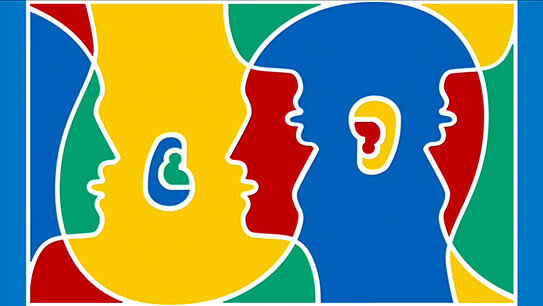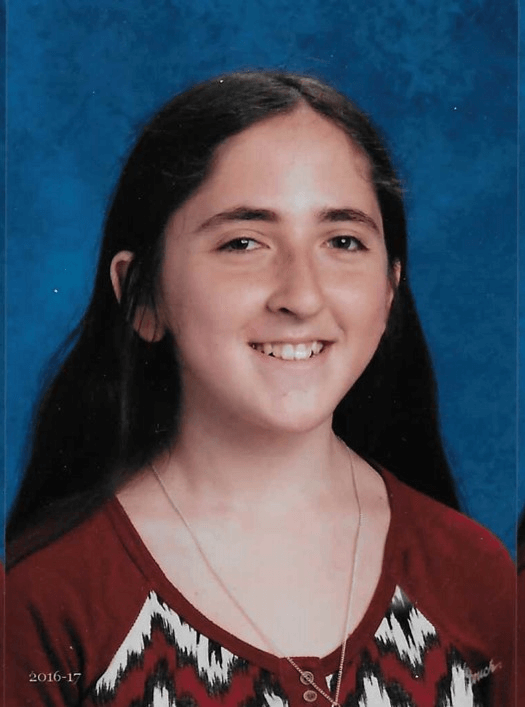
Humanity is a peculiar brand of life. We each shape for ourselves a personal culture, of sorts. Our interests, hobbies, personalities, dictate our lifestyle. And just like global cultures, we maintain our traditions. Seven billion different personal cultures, personal languages, in particular, play a large role in human interaction.
Essentially, no one speaks the same language. Each of us bears differences in our speech, no matter how slight. One of the more obvious examples of this is slang. Most of us have likely heard, or used slang ourselves in conversation; terms like “LOL,” or “bae.” Not everyone chooses to use these words. Not everyone understands them. These choices make your personal language different from someone else’s.
This becomes a rather figurative way of saying that we all communicate differently. Yet these differences construct barriers in human interaction, barriers that, as an awkward person, I found very real, and very intimidating.
I am now about to enter my junior year in high school; a place renowned for being one of the most vicious social tightropes that humans will ever walk, where one single misstep – the wrong words said to the wrong person, for example – will send you plummeting into the jaws of social ridicule. Here, those who don’t watch the popular shows, don’t listen to the right music groups, don’t spend their time chasing the latest trends, are outcasts.
By this definition, then, I am an outcast. My interests are not normal. I am not normal. I refuse to use modern slang, I talk about science and books. Because of this, talking to someone different than me, whether they do fit “normal” standards or not, was a challenge. People would stare, label me as a weirdo, laugh when they thought I couldn’t hear them.
My remedy was to learn their personal languages. I no longer talk to them about the things that labeled me as different. I learned to understand the slang that they use. I began to listen to their interests. And in doing so, I learned how to speak to them. I learned how to exchange words, ideas, and thoughts. This allows me to preserve connections with childhood friends whose paths diverged from mine. They still see me as different, but it no longer matters to them.
Even outside of high school, in the workplace, on the street, each person speaks a different language. A college dropout won’t share a biologist’s interest in their research. An accountant is not rehearsed in the finer points of law. This doesn’t mean that an accountant and a lawyer can never speak to one another. They would simply speak of a mutual interest. It is a simple truth of humanity that we find common ground. People bond and communicate through the things we share.
I have no intention of giving up my own identity, or saying that anyone should. While I often converse with others in their language, so they can best understand me, I don’t adopt their language as my own. I believe that we should be proud of the things that set us apart. Yet I found how hard it was to make someone understand you when they don’t know the words you use, or the shows, books, or music that you talk about. To solve this is a simple matter of listening to someone else, and learning to say to them what you need to say, in a manner they understand, that fits in their personal culture.
At the risk of sounding like a cliché, we are all unique. Yet in our haste to prove this, in our determination to be completely different from everyone else, we often forget. We cannot expect to forge connections with others, to even interact with them successfully, if we do not understand each other.
I am not all-knowing. I can’t tell anyone how to live his or her own life. I can only advise others to strive not to let differences keep them from connecting with other humans. Differences should not isolate us, nor should they dictate the interactions we have with others. There are over seven billion people on this planet; seven billion different people to meet, and seven billion different languages to learn.
This piece was submitted as part of the GrokWithUs initiative, designed to highlight the stories and experiences of GrokNation readers.
 Hannah Nekritz is about to enter her junior year of high school in her home town of Stamford Connecticut. She is a member of her school’s feminism club, drama club, and debate team. In between shows, debate tournaments, and homework, Hannah writes articles for her school newspaper, and short stories that have been recognized in multiple local writing competitions.
Hannah Nekritz is about to enter her junior year of high school in her home town of Stamford Connecticut. She is a member of her school’s feminism club, drama club, and debate team. In between shows, debate tournaments, and homework, Hannah writes articles for her school newspaper, and short stories that have been recognized in multiple local writing competitions.


Grok Nation Comment Policy
We welcome thoughtful, grokky comments—keep your negativity and spam to yourself. Please read our Comment Policy before commenting.